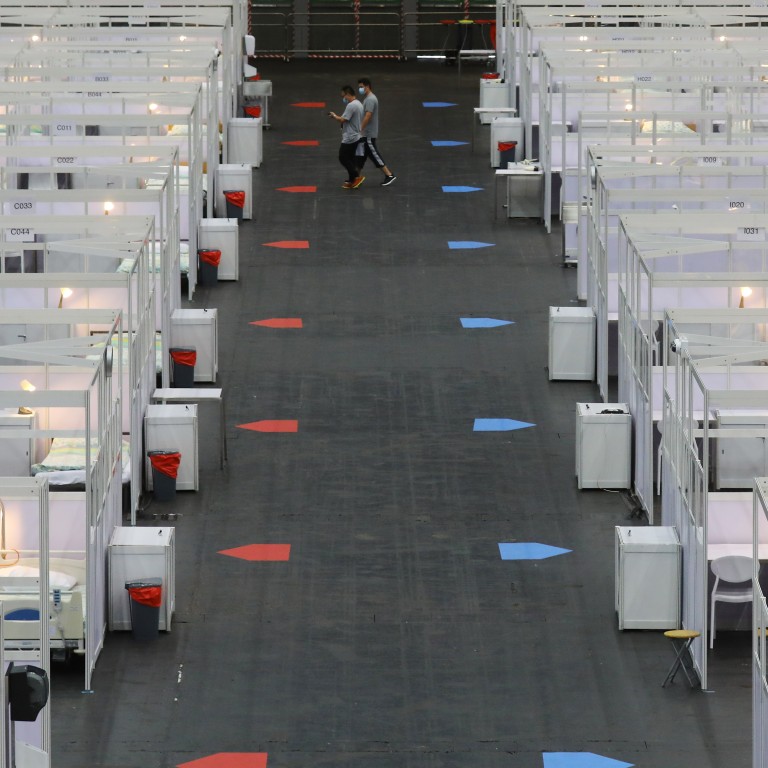
Electronic health platform at AsiaWorld-Expo Covid-19 hospital streamlines patient processing, protects medical staff
- Patients register their mobile number once admitted, and are taught how to check their own vital signs and input data, minimising contact with workers
- Facility at exhibition centre near the airport has received nearly 600 coronavirus patients between the ages of 18 and 60
Hong Kong health authorities have set up an electronic platform that will allow for easier processing of coronavirus patients and protect medical workers by minimising contact at the city’s first makeshift hospital.
City’s first makeshift Covid-19 hospital will take in younger, healthier patients
The newly installed health system has been in place since the facility began operating on August 1 to help ease pressure on the city’s public hospitals.
Patients are required to register their mobile number once they are admitted, and are given a QR code as an identifier inside the facility. They are then taught how to check their own vital signs and input the data into the system.
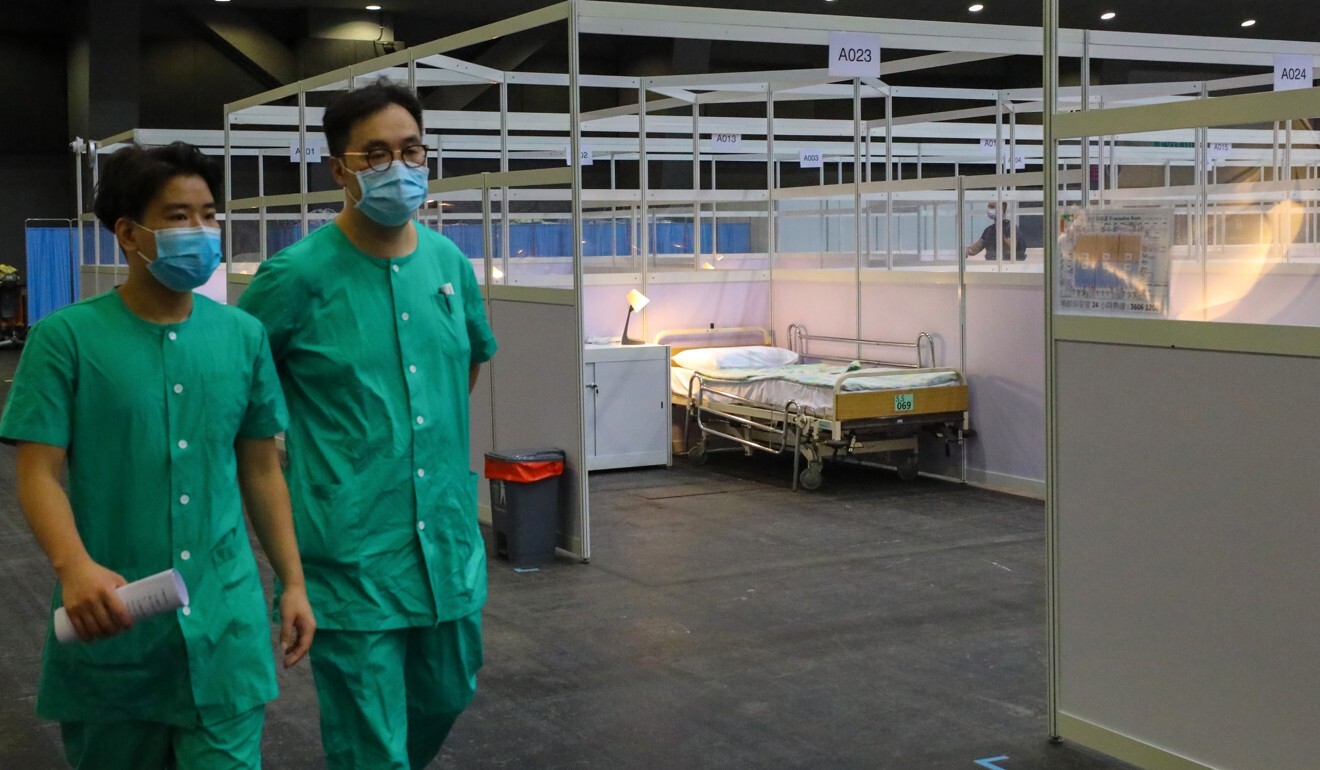
“Medical staff will not need to physically approach the patient to monitor and check their vitals, which reduces the risk of infection. It also increases our interaction with patients digitally,” said Dr Polk Wan Chi-kin, an accident and emergency associate consultant at North Lantau Hospital, adding that they had received positive feedback about the system.
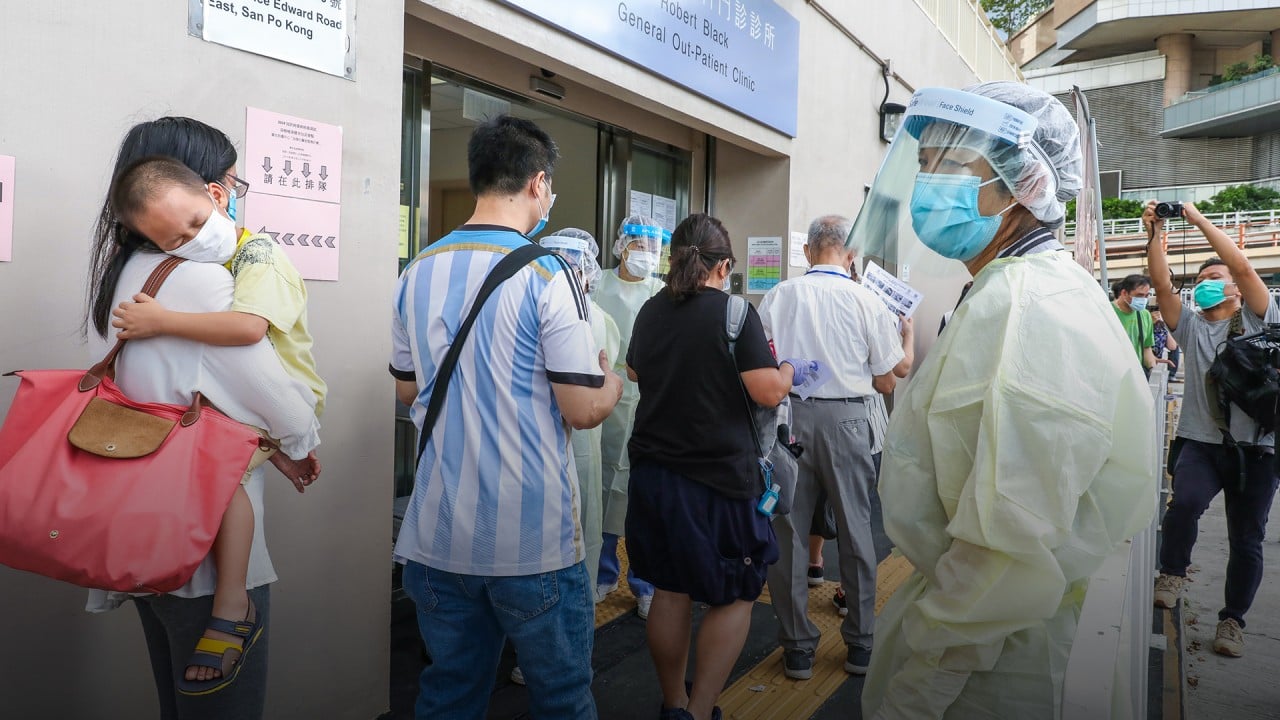
03:07
Hong Kong’s mass Covid-19 testing to begin on September 1, to last at least 7 days
Dozens of medical staff in green scrubs are stationed outside the makeshift hospital to assist doctors with tele-care patient consultations via phone or video call. Around 200 staff members, of whom 28 are doctors, work at the facility.
Patients need to check their vitals twice a day. If the readings are unusual, medical staff will follow up remotely. There is also a station inside the community treatment facility with nurses on hand to help the patients if needed.
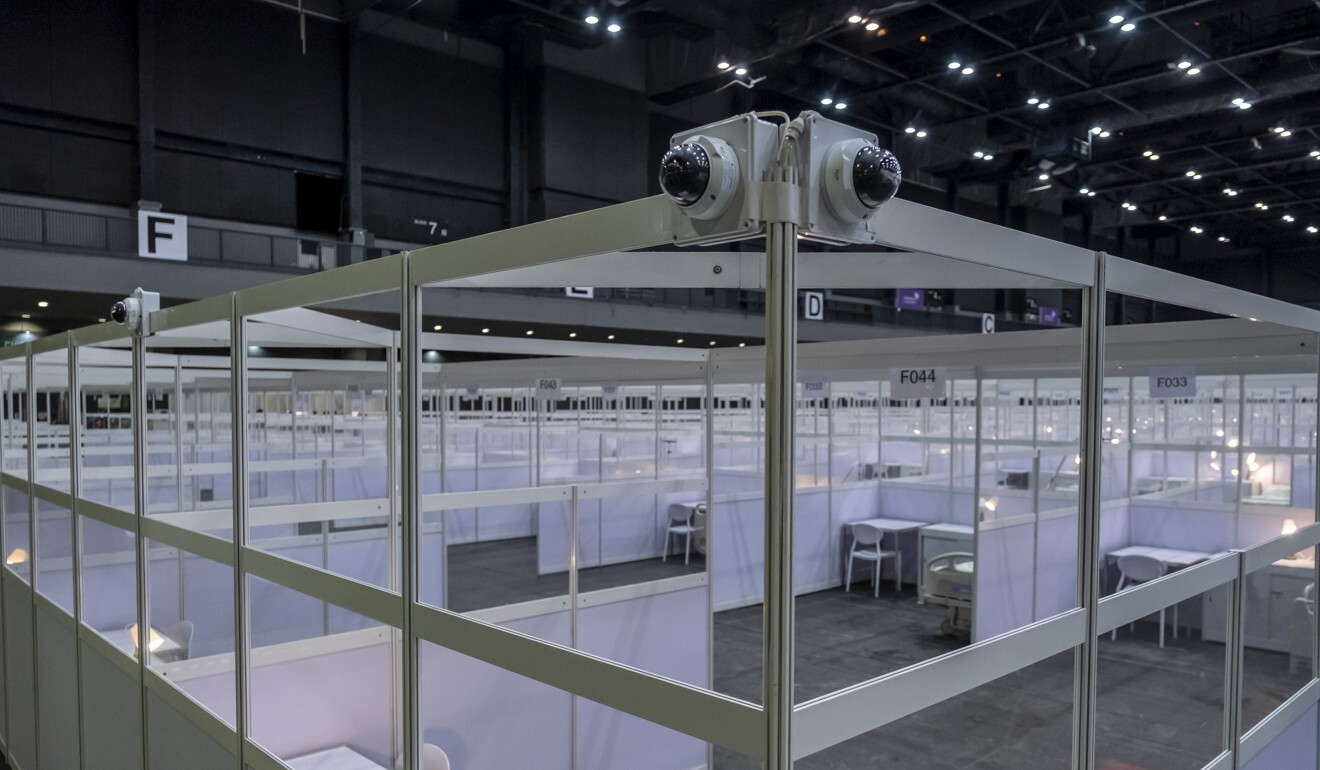
The main challenge of the e-health system was anticipating what needed to be built into the platform beforehand, said Dr Larry Lee Lap-yip, an accident and emergency consultant at Tin Shui Wai Hospital. Lee added it was important to avoid having personnel go in and out of the “red zone” to provide technical support.
“We’d need to train another group of staff to go in,” he said. “Whatever you do outside [the community treatment facility] ... we have time to do so, but whatever is inside, we have to think [of] beforehand.”
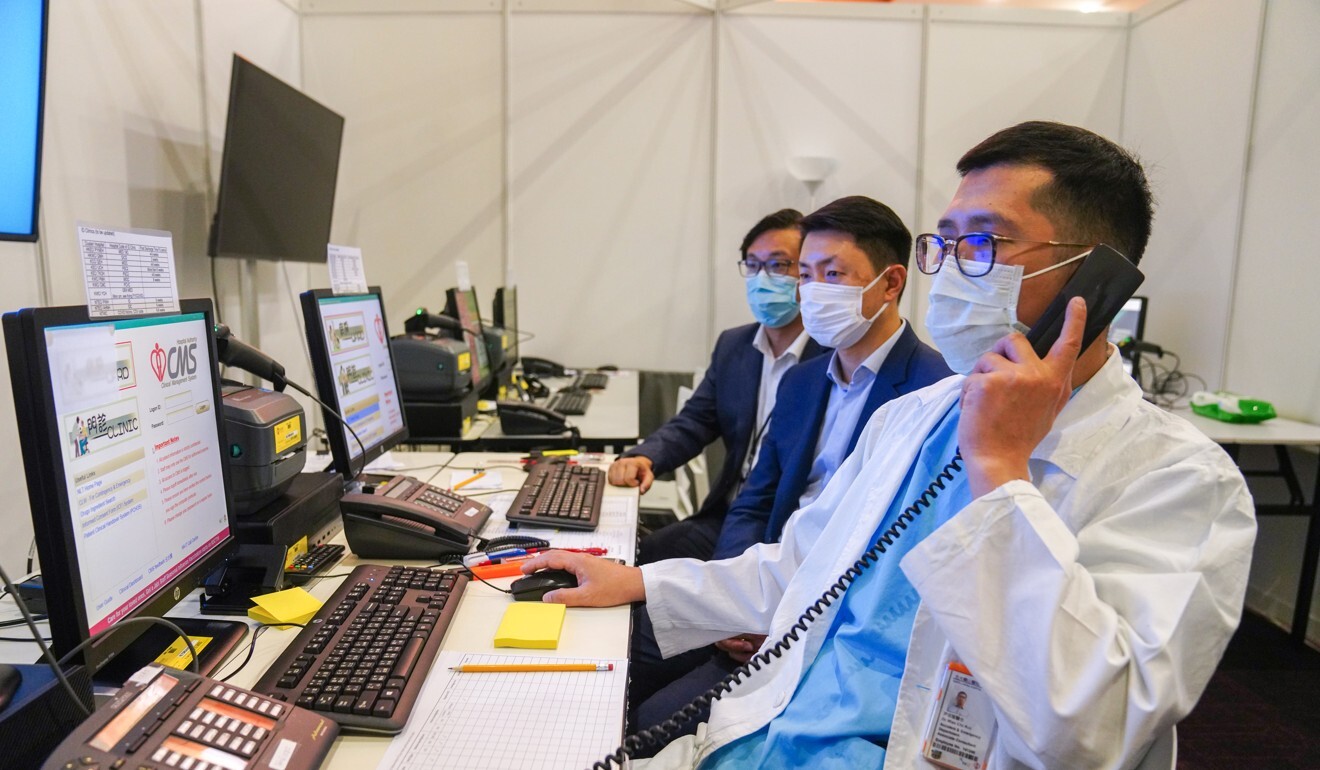
Hong Kong’s third wave of coronavirus infections, which emerged in early July, pushed the occupancy rate of isolation wards and beds in public hospitals to a peak of around 80 per cent. On Sunday, the figures were 63 and 50 per cent, respectively.
As of Sunday, the number of confirmed cases stood at 4,682, with 77 related deaths.
A total of 346 patients have been discharged from AsiaWorld-Expo, with an average stay of 4.7 days, while 139 remained at the facility as of Friday morning.
More than 100 patients have been transferred to hospitals for further treatment, and around half of them were moved as a precaution before their condition worsened. Those patients’ chest X-rays usually showed signs of pneumonia and required antiviral drugs for treatment, according to Dr Ivan Hung Fan-ngai, a clinical professor of medicine at the University of Hong Kong.
Meanwhile, the government’s one-week voluntary Covid-19 screening programme is set to begin on September 1, and may be extended for no more than seven days.
Lee expected the makeshift hospital in AsiaWorld-Expo to be able to take in those who test positive.

